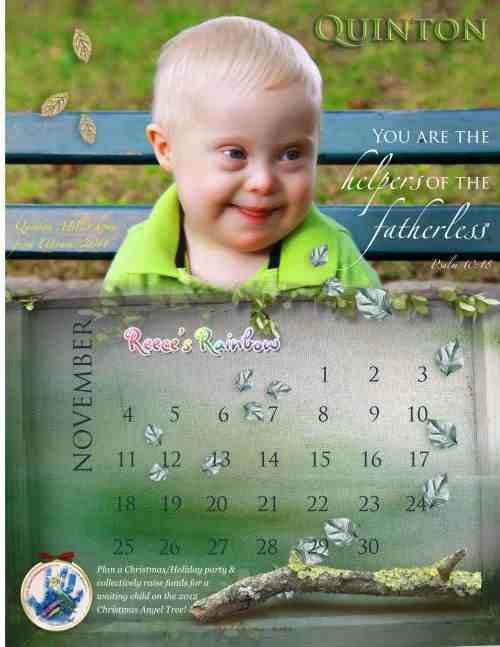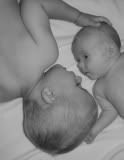Chase was approved for Synagis, the super mega expensive drug used to prevent RSV. The nurse called today from the pediatrician's office to tell me about it. Great, right?
Nope:
1- It is given over 5 months, 1 injection each month. That is equal to 5 $25 copays. ($125)
2- My insurance pays for 90% of each injection. Yay, right? Nope. My 10% is $150!!! Holy crap! Yeah, and that is only for 1 shot. $150 x 5 shots= $750. Oh, and if he gains any more weight, they will have to up his dosage and our portion will be $200 per shot.
3- Let me just reiterate: $875 for this drug.
Now, I love Chase. I don't want him to get RSV. But, really. Who has almost $1,000 just lying around for this??
Luckily, the nurse referred me to this program, Patient Access Network Foundation, where, if we qulaify, my portion of the injections would be covered, and I think we would only have to pay the copays for the visits. Unfortunately, we always seem to earn just enough income to prevent us from getting aid, but we don't earn enough to pay for surprises like this outright. I talked to the rep from the foundation and she's sending a packet out, though. Hopefully we will qualify.
Has anyone else done this before? Is it worth it? I tend to think of Chase as relatively healthy. Does he really need it?
Subscribe to:
Post Comments (Atom)









7 comments:
Holy smokes thats alot of money - wish I had some great info or advice to share but I don't. Just wanted to let you know I feel for you. I was thinking woohoo I am getting a pay check and then Tristan has to have an orthodontal appliance put in...oy vey!
Hey!
Ella had the synagis shots last year cause she was a premie, luckily for us we didn't have any co-pays. Anyhow in December while we were out of town Ella got really sick and they ended up putting her in the hospital for 2 days cause they thought she had RSV. So, I of course told them there was no way because she had had the shot and they said that it isn't 100%, especially if since she hadn't had all of them yet. She ended up having bronchitis and not RSV but my point is you can get it even if you've had the shot. Just thought I would share : )
I would not get it for Chase. He is so healthy, and RSV seems to hit the younger babies who have some underlying respiratory or immune problems (like premies). He is also not in daycare, where the bugs are picked up most often. Just keep him away from sick kids, which is good advice for any disease.
Gaga
I would tend not to do it. That's a lot of money.
Chase does seem healthy, no heart defect, right? He's at a good weight, and is an older baby. And he's not in childcare so it seems like his risk would be low.
Evan got the shots last year, before his heart surgery and right after. Our insurance paid for it, plus he has Medicaid as a secondary so they picked up his co-pay. His cardiologist told us a few weeks ago he didn't need it this year, and we probably wouldn't qualify anyway, nor would our insurance cover it.
What does your pediatrician think?
Oh, and our pedi told us the same thing about the shots not being 100% effective...he had to test Evan for RSV one time when he was sick. He didn't have it, but still...I'm thinking, why the heck are we bothering with all of this if he can still get RSV anyway?
What does RSV stand for? What exactly is it? Us non-DS people would like to be educated. :) Thanks.
Mandi-
Respiratory syncytial virus (RSV) is the most common cause of bronchiolitis and pneumonia among infants and children under 1 year of age. Illness begins most frequently with fever, runny nose, cough, and sometimes wheezing. During their first RSV infection, between 25% and 40% of infants and young children have signs or symptoms of bronchiolitis or pneumonia, and 0.5% to 2% require hospitalization. Most children recover from illness in 8 to 15 days. The majority of children hospitalized for RSV infection are under 6 months of age. RSV also causes repeated infections throughout life, usually associated with moderate-to-severe cold-like symptoms; however, severe lower respiratory tract disease may occur at any age, especially among the elderly or among those with compromised cardiac, pulmonary, or immune systems.
It's all over- not just DS :)
Post a Comment